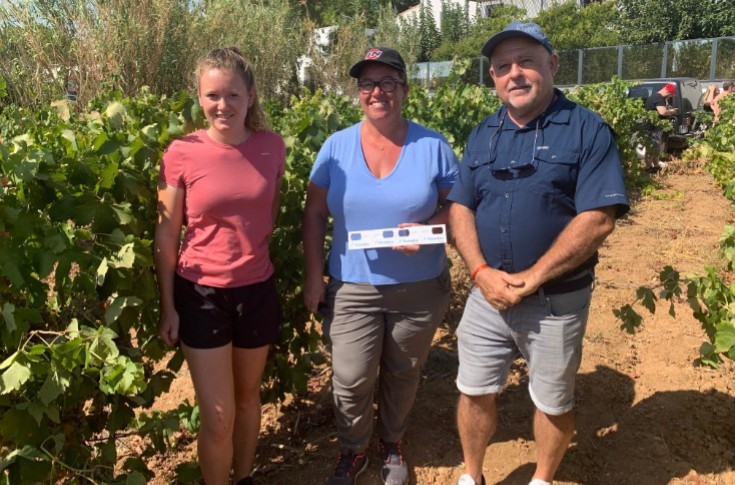Vineyards in southern France using biological control against cryptoblabes

The HĂ©rault county council supports winegrowers affected by frost, hail and drought. We are also here to encourage them to combat pests with biological resources”, explains Yvon Pellet, the council’s vice-chairman tasked with agricultural economics and rural planning.
The department has decided to fund 80% of the cost of buying trichogramma for 36 growers over the next three years. The tiny wasps have the ability to parasitise the eggs of cryptoblabes gnidiella. The technique is being trialled over 140 hectares by members of co-operative wineries in Pinet, SĂ©rignan and Maraussan, and at independent wineries in BĂ©ziers and Vendres.
In 2013, the local council helped roll out mating disruption to combat lobesia botrana in Pinet. “The procedure was successful. 60% of Picpoul vineyards are now managed using mating disruption”.
Two advisors from the chamber of agriculture are monitoring the latest experiment. “We have already conducted trials on small blocks in 2022. The trichogramma proved to be 50 to 90% effective, compared with 60% for conventional insecticides”, explains Maureen Masson.
For the past fortnight, Masson has been taking samples from clusters in blocks belonging to a range of partner growers. “I dip them in salt water to remove the cryptoblabes larvae. So far, I haven’t found any”. The chairman of the SĂ©rignan co-operative winery, Pierre Calmel, introduced his second batch the night before. “I haven’t seen any damage in my vineyards whereas other blocks are already badly affected”.





